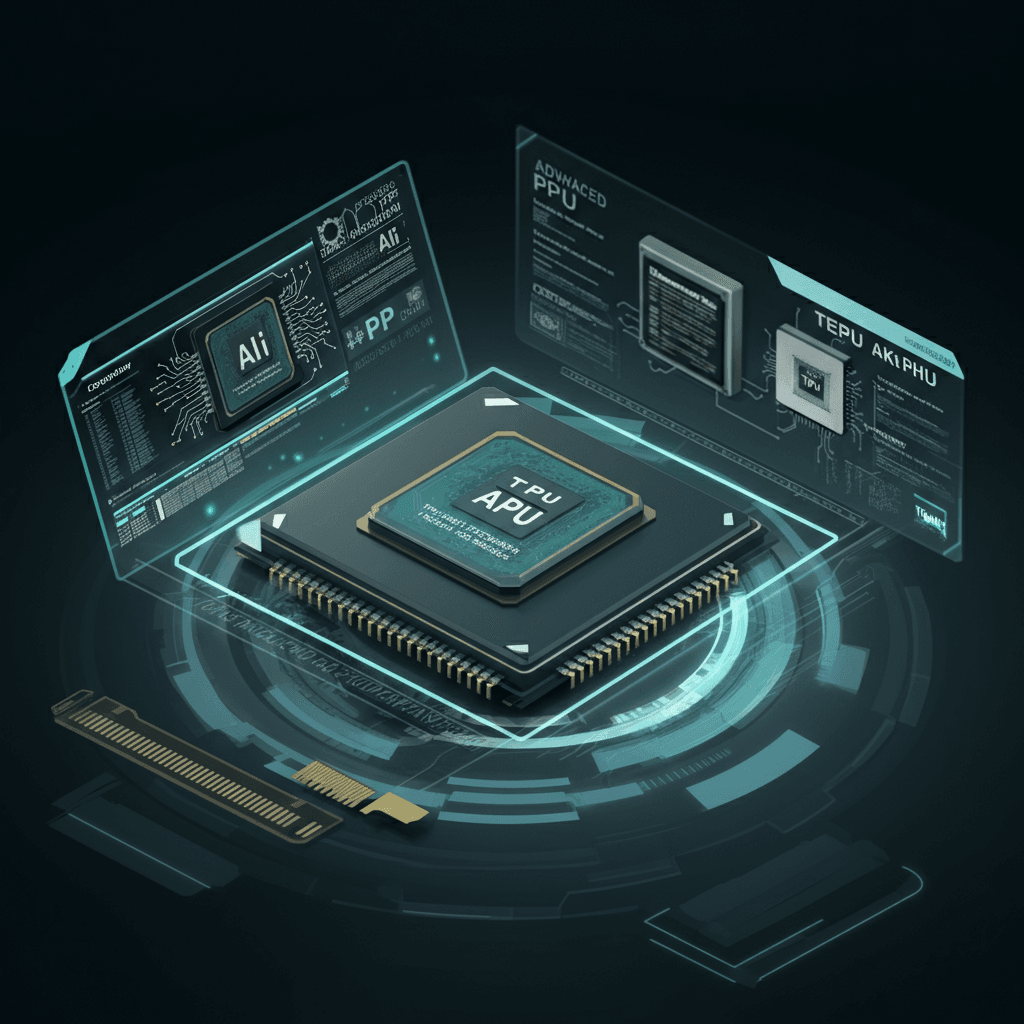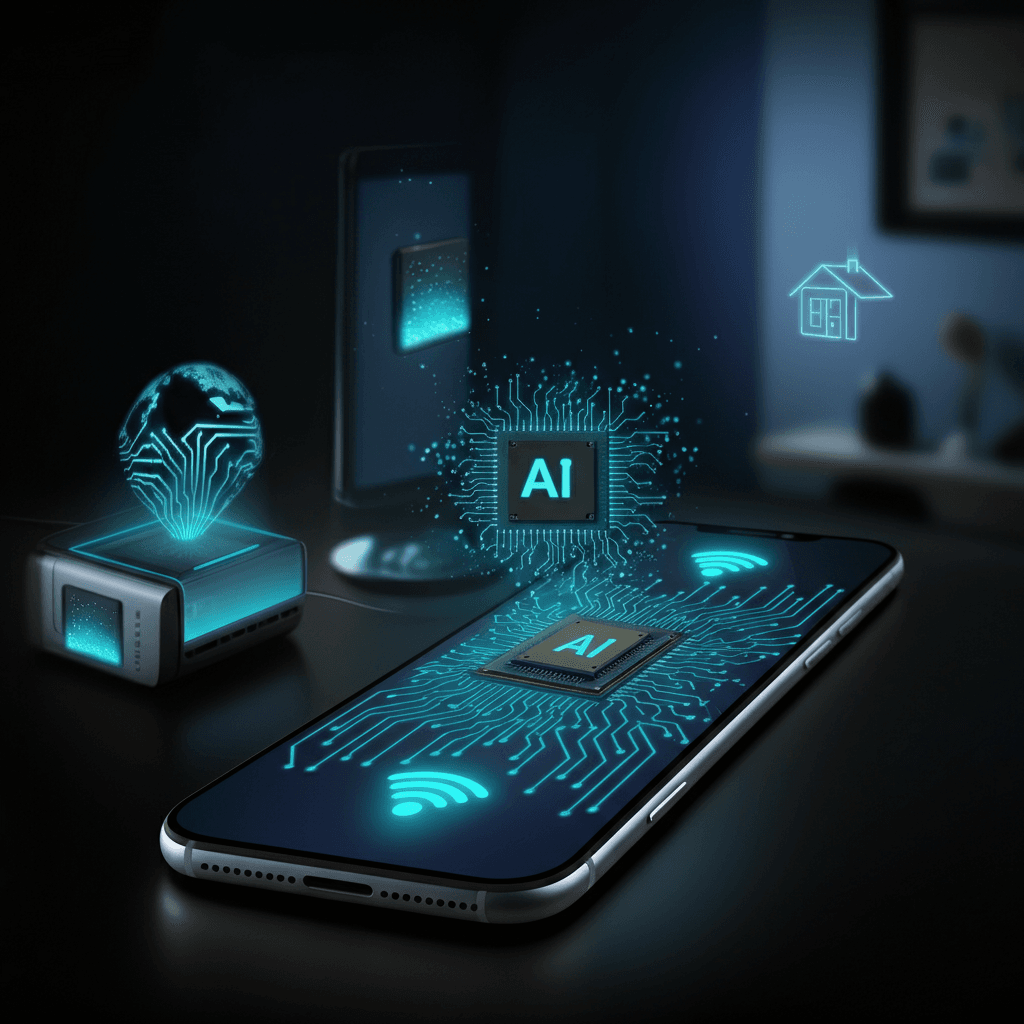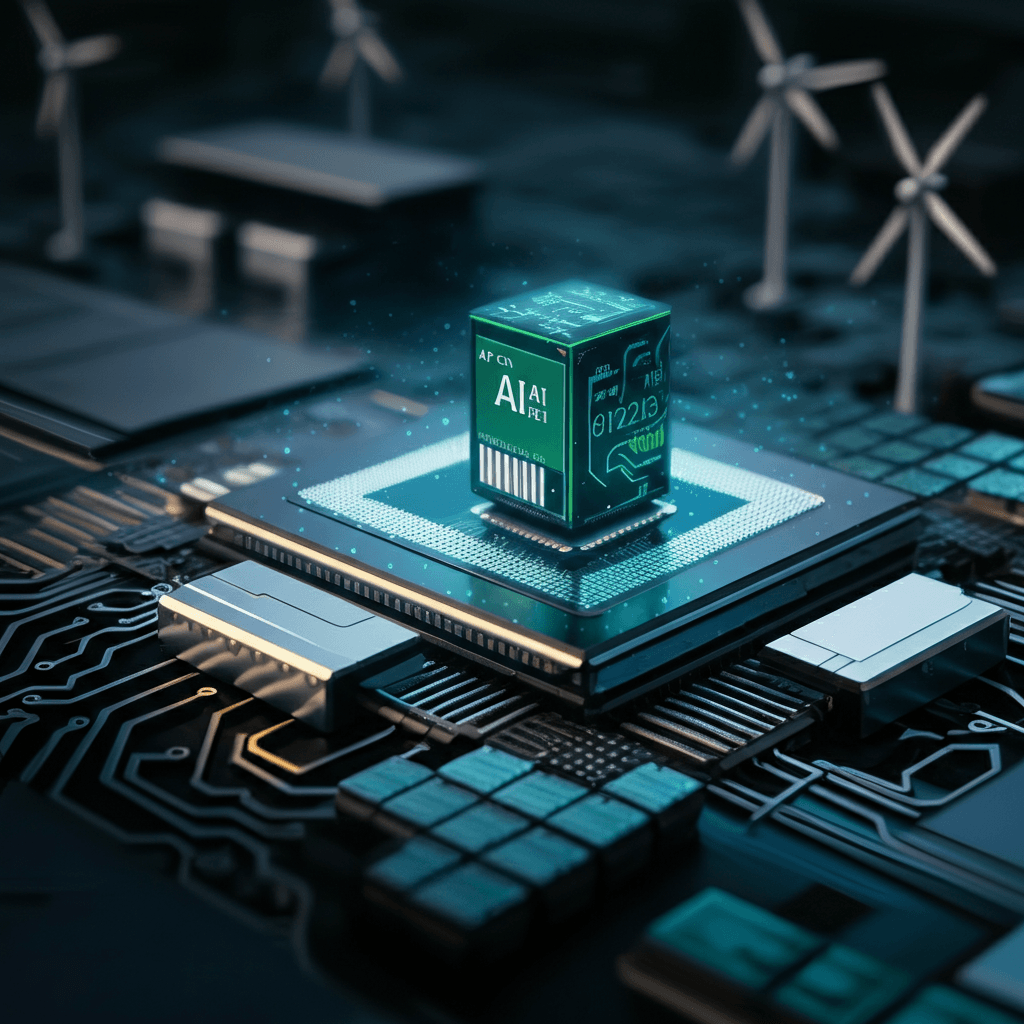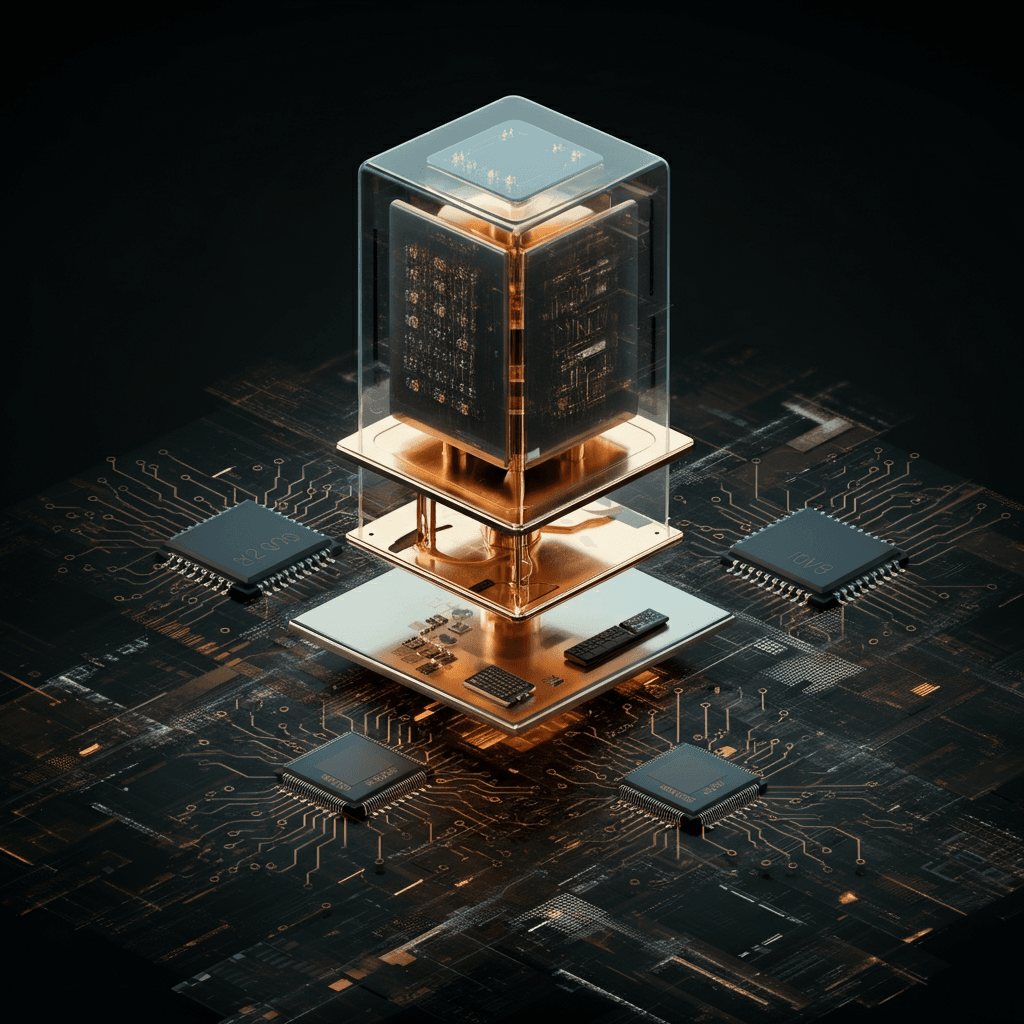Artificial intelligence (AI) has made incredible strides in recent years, powering applications ranging from facial recognition systems to natural language processing and autonomous vehicles. However, these advances require significant computational power, which has pushed hardware technologies to their limit. To keep up with the demands of modern AI, researchers and engineers are turning to groundbreaking hardware solutions like quantum computing and specialized processors, including the AI chip, which plays a crucial role in powering modern artificial intelligence technologies. These innovations promise to accelerate AI capabilities, opening doors to a future of unprecedented machine intelligence.
From quantum computers capable of solving problems currently deemed impossible to advanced chips optimized for AI workloads, the next frontier in hardware development is as exciting as it is transformative. This article dives into how these technologies are evolving, their impact on AI performance, and the companies leading the charge.
Introduction to AI Hardware
Artificial intelligence (AI) hardware refers to the physical components that enable AI systems to process and analyze vast amounts of data. These components are designed to accelerate machine learning and deep learning workloads, which are critical for the development and deployment of AI models. The primary function of AI hardware is to provide the necessary computational power to handle the complex algorithms and large datasets that AI systems require. As AI continues to evolve, the demand for more powerful and efficient hardware solutions grows, driving innovation in the field.
Definition and Importance of AI Chips
AI chips, also known as specialized AI chips, are designed to meet the unique computational demands of AI workloads. Unlike general-purpose processors, these chips are optimized for specific AI tasks such as natural language processing, computer vision, and predictive analytics. By focusing on these specialized functions, AI chips can deliver superior performance and efficiency, making them essential for powering advanced AI systems. For instance, AI chips are crucial in applications ranging from autonomous vehicles to real-time language translation, where rapid data processing and analysis are paramount.
The Role of Quantum Computing in AI

Quantum computing represents a paradigm shift in how we process data. Quantum artificial intelligence, integrating quantum computing with existing AI models, has the potential to exponentially enhance computational power and solve complex problems more efficiently. Unlike classical computers, which utilize binary bits (0s and 1s), quantum computers use quantum bits, or qubits, which can exist in multiple states simultaneously. This phenomenon, known as superposition, enables quantum computers to perform complex calculations at speeds unthinkable for traditional systems.
Quantum Machine Learning Explained
Quantum AI leverages the computational power of quantum systems to solve problems that involve vast amounts of data and multivariate calculations. These systems can enhance AI processes such as optimization, machine learning model training, and data analysis. Tasks like drug discovery, financial modeling, and combinatorial optimization, which often grind classical CPUs to a halt, can be tackled efficiently using quantum AI.
Real-World Example: Google’s quantum computer, Sycamore, demonstrated “quantum supremacy” in 2019 by completing a calculation in 200 seconds that would have taken the most powerful supercomputer 10,000 years. IBM, another quantum computing pioneer, has developed Quantum System One, the world’s first integrated quantum computing system designed for commercial use, advancing quantum machine learning research.
Benefits and Challenges of Quantum AI
Quantum computing offers AI significant advantages, including faster data processing and the ability to solve problems that were previously intractable for classical systems. However, there are considerable challenges too. Quantum computers require highly stable environments, as qubits are sensitive to external interference or “noise.” Additionally, the development of quantum algorithms that integrate seamlessly with AI applications remains an area of ongoing research.
Quantum AI vs. Classical Computing
Quantum AI and classical computing represent two fundamentally different approaches to processing information. Classical computing relies on bits, which can be either 0 or 1, to perform calculations. In contrast, quantum AI uses qubits, which can exist in multiple states simultaneously thanks to the principles of quantum mechanics. This property, known as superposition, allows quantum computers to process vast amounts of data in parallel, potentially solving complex problems much faster than classical computers. As a result, quantum AI holds the promise of revolutionizing fields that require intensive data analysis and optimization, such as cryptography, drug discovery, and financial modeling.
Advanced AI Chips Driving Performance

While quantum computing represents the long-term future of AI, immediate progress is being driven by specialized processors designed to execute AI tasks more efficiently. The emergence and growth of startups within the AI chip industry have attracted significant investment, despite their recent establishment, and the competitive landscape is dominated by established giants like Nvidia, addressing ongoing legal and market challenges that could disrupt the AI chip industry. These advanced AI chips include Graphics Processing Units (GPUs), Tensor Processing Units (TPUs), and neuromorphic processors.
GPUs in AI
AI chips powering various devices have played a pivotal role in AI’s growth, enabling parallel processing for computationally intensive tasks like deep learning and image recognition. These AI chips are more energy-efficient compared to conventional chips, utilizing techniques like low-precision arithmetic and parallel processing to optimize performance and minimize energy consumption. Unlike traditional CPUs, which process computations sequentially, GPUs can handle multiple calculations simultaneously, making them ideal for training large-scale neural networks.
Real-World Example: NVIDIA, the market leader in GPUs, produces cutting-edge hardware like the A100 Tensor Core, designed explicitly for AI and high-performance computing. Its GPUs are the backbone of numerous AI applications, from autonomous driving to medical imaging systems.
Tensor Processing Units (TPUs)
Developed by Google, TPUs are custom-designed chips optimized for machine learning tasks. Field programmable gate arrays (FPGAs) are another type of specialized AI chip that can handle complex computational tasks. They excel at accelerating workloads performed by TensorFlow, Google’s open-source AI framework. TPUs consume less power than GPUs while delivering better performance for specific AI operations, such as matrix multiplication and inferencing.
Real-World Example: Google’s TPU-based supercomputers run AI-powered services like Google Translate, Photos, and Assistant, significantly improving their speed and accuracy.
Neuromorphic Processors
Neuromorphic processors are inspired by the structure and function of the human brain. These chips utilize spiking neural networks, which simulate the way neurons communicate. This unique architecture makes them incredibly efficient at tasks requiring real-time learning and decision-making.
Real-World Example: Intel’s Loihi neuromorphic processor mimics neural behavior to process data more efficiently than traditional architectures. It has been used in applications ranging from robotics to adaptive energy systems.
Benefits and Challenges of Specialized AI Chips
Specialized AI hardware delivers significant performance gains by reducing the time and energy required for computational tasks. However, the high design and manufacturing costs of these chips, paired with the need for software optimization, present challenges. Additionally, exporting such hardware expertise to organizations outside big tech remains a hurdle.
Quantum AI Security and Ethics
As quantum AI technology advances, it brings with it a host of security and ethical concerns that need to be addressed. One of the most significant issues is its impact on cryptography. Quantum AI has the potential to break many of the encryption methods currently used to secure data, posing a serious threat to data security and privacy. To counter this, researchers are developing new cryptographic techniques, such as quantum-resistant cryptography and homomorphic encryption, to safeguard information in a quantum computing era.
Cryptographic Challenges and Data Protection Concerns
Quantum AI’s ability to break traditional encryption methods presents a significant challenge to data security. This capability could compromise the confidentiality and integrity of sensitive information, necessitating the development of new cryptographic solutions. Quantum-resistant cryptography aims to create algorithms that can withstand attacks from quantum computers, ensuring that data remains secure. Additionally, homomorphic encryption allows computations to be performed on encrypted data without decrypting it, providing an extra layer of security.
Data protection is another critical concern in the realm of quantum AI. Robust measures are needed to prevent unauthorized access and misuse of data. This includes developing secure data storage and transmission protocols, as well as implementing stringent access controls and authentication mechanisms. As quantum AI continues to evolve, addressing these security and ethical challenges will be crucial to its safe and responsible deployment.
The Impact of Advanced Hardware on AI Applications

The rapid advancement of AI hardware is revolutionizing industries by enabling new capabilities and scaling solutions to unprecedented levels.
Accelerated Model Training
AI models often require weeks or months to train on traditional hardware. Advanced chips like GPUs and TPUs significantly reduce this time frame, enabling researchers to iterate quickly and improve model accuracy.
Real-World Example: OpenAI’s GPT models, including the widely used GPT-4, were trained on supercomputers with thousands of GPUs, allowing the processing of billions of parameters.
Edge AI for Real-Time Applications
Edge AI refers to running AI algorithms locally on edge devices, such as smartphones or smart home devices, rather than in a cloud environment. Specialized hardware like neuromorphic processors enables real-time decision-making at the edge, reducing latency and enhancing privacy.
Real-World Example: Apple’s Neural Engine, embedded in its A-series chips, powers features like Face ID and real-time augmented reality on iPhones and iPads.
Enhanced Energy Efficiency
AI computations often require significant energy, contributing to rising operational costs and carbon footprints. Advanced hardware is addressing these concerns through energy-efficient designs, making AI deployments more sustainable.
The Future of AI Hardware

The development of quantum computing and advanced AI chips is still in its early stages, but their potential to revolutionize industries is already evident.
Emerging Trends
Quantum-AI Integration: Companies are researching hybrid systems that combine quantum capabilities with classical AI chips, leveraging the strengths of both. The quantum computing ecosystem is a dynamic landscape filled with discussions about the timeline and feasibility of achieving quantum advantages, with major organizations and collaborative groups working towards a robust quantum infrastructure.
AI Co-Processors: Future devices are likely to come equipped with dedicated AI processors, much like TPUs, for faster and more efficient execution of AI workloads. The necessity of cloud-based Quantum-as-a-Service (QaaS) is emphasized due to the high costs and technical challenges associated with quantum computing hardware.
Scalable Chips for SMEs: Efforts are underway to make AI hardware accessible to small and medium enterprises (SMEs), democratizing AI technologies.
Green AI Hardware: Sustainability is emerging as a priority, with chipmakers developing energy-efficient processors and integrating renewable energy sources into their manufacturing processes.
Industry Leaders
Tech giants like IBM, Google, NVIDIA, and Intel are at the forefront of hardware innovation, while startups like Cerebras Systems and Graphcore are pushing the envelope with unique chip designs aimed exclusively at AI workloads. Collaborative efforts between hardware developers and academia will play a crucial role in driving breakthroughs.
Potential Challenges
While advanced hardware promises incredible capabilities, it raises concerns around cost, accessibility, and security. Quantum error correction is crucial in enhancing the performance and reliability of quantum systems, allowing for better implementation of complex algorithms and techniques that leverage the unique advantages of quantum computing. Ensuring the safe deployment of quantum computing in critical sectors, such as finance and healthcare, will require robust regulatory oversight.
Final Thoughts
The race to develop next-generation hardware capable of supporting advanced AI applications is accelerating rapidly. With progress in quantum computing and new efficiencies from GPUs, TPUs, and neuromorphic processors, the horizon looks promising for AI innovation. These advancements have the potential to disrupt industries ranging from healthcare to manufacturing, and even redefine how we approach global challenges like climate change and urbanization.
To fully realize the potential of these hardware breakthroughs, collaboration between tech companies, governments, and researchers is paramount. By uniting resources and expertise, the world can unlock the true power of quantum AI and advanced chips to foster innovation, sustainability, and progress across all sectors.
